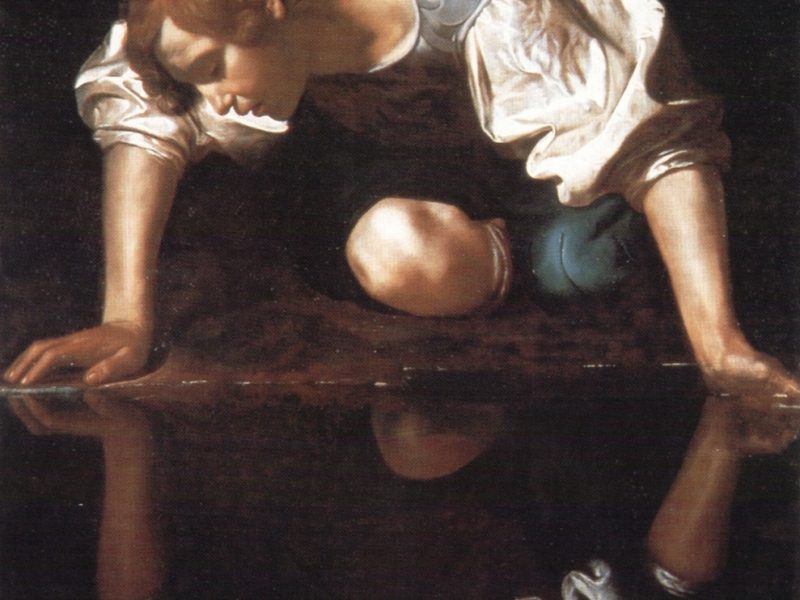Vanity or pride? What happens when you are looking for a job?
 Vanity
Vanity In this outspoken and socialworld, it seems people can’t do without social media, speaking about themselves, presenting themselves and trying to amaze others with the things they do…
Personally, I can’t help thinking sometimes that is all gone too far.
Do you ever meet people who tell you their whole CV over lunch even though you’ve known them for decades? Or people who say anything that comes into their mind on social media, as if they were talking to themselves in the mirror, with no limits, no manners and absolutely no context?
Or people on LinkedIn - supposedly the foremost professional network - who sing their own praises for being on the board of a non-profit association which should be the least of their concerns if they genuinely had a flourishing career….
You do have to manage your own brand but you need to be careful about how you do this and above all be consistent.
And the way you communicate with others on social media platforms has to be onsistent with your brand and style. So you might choose to be measured, calm, intriguing or even thought-provoking but you don’t need to post stuff every hour or even every day!
I don’t think I’m the only person that’s had enough.
I read and put aside anarticle a few months back written by Nicola Gardini, entitled "Vain people are anxious and insecure". It makes someinteresting points.
Me and me again
This is vanity. Stendhal, an expert in social psychology, considered vanity to be humankind’s worst defect. He considered it to comprise: superficiality, pride, touchiness, over-sensitivity, cynicism, arrogance, worldliness, frivolity; in other words everything that demeans exchange, participation and discovery. In an autobiographical page, after an unpleasant melodramatic incident, he sighed: «I see all the emptiness in vanity.». According to him it was the most in vogue passion of his century. He had not seen ours.
– Nicola Gardini
Selfies
Can an individual, the self, exist merely as a function, in a system of mutual relationships and recognitions. Yes, we need others unless we are content to return to a primordial state of self-preservation. By denying others a priori, the vain person establishes a relationship with a double of themselves. Their instrument and distinctive trait is the mirror, which applies in all its forms: from the pond of Narcissus (and that of all his imitators, Petrarca’s Laura, Torquato Tasso’s Silvia or Rinaldo, Oscar Wilde’s Dorian Gray, the witch from Snow White, etc.) to the ubiquitous selfie of our times, a genuine test of psychic and somatic contortionism, about which Carlo Fava invented a funny song, the “Selfie di schiena” (the rear selfie). Svetonio tells us that Emperor Caligula had a golden statue sculpted in his likeness and everyday he had his servants dress it like him. A complicated and expensive idea, but the principle is the same.
– Nicola Gardini
Vain or proud?
A vain person is mainly interested in material things, what people have before their eyes: a face, a physique and accompanying features, from a haircut, to make-up, to an outfit, a pocket, a wallet. In Diderot’s Encyclopédie, under the word vanité, he scoffs at enthusiasts of luxury clothing. Vanity cannot belong to a person who cultivates thoughts, art and goodness. That type of person might be arrogant, because they know their talents and believes that these did not come from the world around them or from above expect. Cicerone and Dante were proud – and were aware of this –, not vain. The philosopher Schopenhauer draws the following distinction: «pride (Stolz) is the pre-existing conviction of one’s superiority, in one sense or another; vanity (Eitelkeit) however, is the desire to trigger that conviction in others, and is largely accompanied by the more or less secret hope to consequently develop that conviction oneself.
– Nicola Gardini
Worrying!
If we were all vain, everything would collapse and there would be no more society. And to stop this universal disintegration we leave the power and mission to a few powerful individuals to govern us. Vain people think they own the world but instead neglect their civil responsibilities, leaving others to deal with fundamental issues and establish their own vision and decisions. It would be better to have a population of proud people who are at least aware of what is going on around their mirrors and where necessary would be prepared to roll up their sleeves and do something about it. Even better would be a world of magic mirrors like those encountered by Ariosto’s Ruggiero after his orgy of vanity in the kingdom of Alcina: a bright smoothness in which people can see right into their soul and finally as they discover their true selves, acquire judgement and foresight.
– Nicola Gardini
